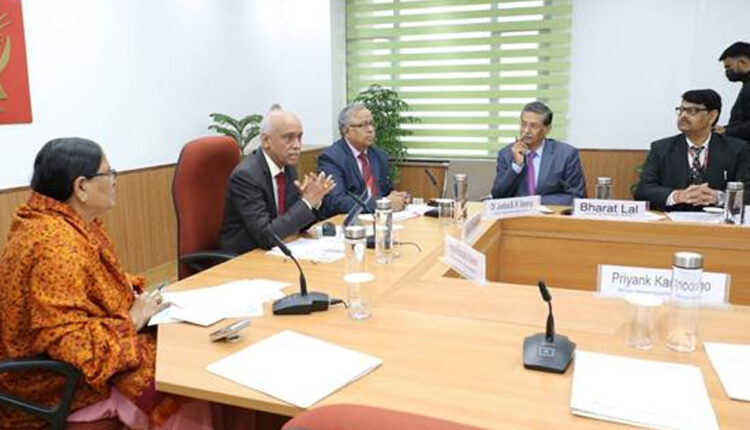The National Human Rights Commission (NHRC), India organised an open house discussion in hybrid mode on ‘Dignity and Liberty of the Individuals- Rights of Manual Scavengers’ at its premises in New Delhi. The discussion was chaired by the NHRC, India Chairperson, Justice Shri V. Ramasubramanian in the presence of Members, Smt. Vijaya Bharathi Sayani and Justice (Dr) Bidyut Ranjan Sarangi, Secretary General, Shri Bharat Lal and other senior officers. Attendees included representatives from various ministries and state governments, NGOs, human rights defenders, UN agencies, private organizations, and research scholars, contributing to discussions on pertinent issues on rights of manual scavengers and ensuring dignity to them.
The NHRC, India Chairperson said that manual scavenging is one area that is being tackled legislatively, managed executively and supervised judicially to eradicate it. However, it is concerning that the deaths of sanitation workers are still happening despite the legal provisions to eradicate manual cleaning of sewage and hazardous waste.
Justice Ramasubramanian said that it is necessary to study and understand the causes to suggest remedial measures. He also stressed the need for running a pilot project using technology/ robots for cleaning sewer lines and septic tanks to begin with one state to see its outcome and further replication in other parts of the country.
Before this, setting the agenda of the discussion, NHRC, India Secretary General, Shri Bharat Lal said that the Commission has taken up the issue of implementation of mechanized cleaning processes by various States and the steps taken by them in this regard. It has come out that various states have prepared up to three years programme for all Urban Local Bodies in accordance with the guidelines issued by the Supreme Court in Dr. Balram Singh v/s Union of India & Ors. case. He also highlighted how certain castes and communities are disproportionately affected by this practice.



Comments are closed.